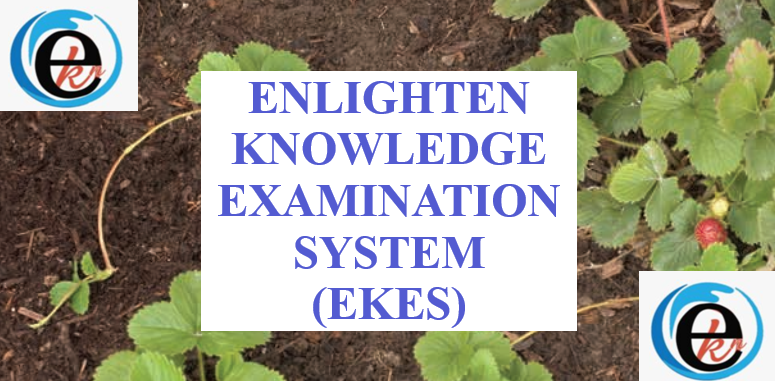Enlighten Knowledge Exam; Subjective questions on biotechnology and endogenous industries

What is fermentation?
Fermentation is the breakdown of complex organic substances into simple ones by the action of an organic catalyst.
State three important applications of fermentation.
- Brings about the rising of bread
- In the production of ethanol from sugar
- In the production of yogurt
What is genetic engineering?
Genetic engineering involves changing an organism’s genotype by inserting a gene from one organism into the genetic material of another.
State two beneficial characteristics of cattle bred from genetic engineering.
- They will have a high reproductive rate.
- They will be resistant to diseases.
- They will have well-developed muscles.
- They will be easy to handle.
- Their meats will be lean (not fatty).
- It improves the quality of the species.
Traditional/Indigenous Way of Soap Production.
What is biotechnology?
Biotechnology is the use of living organisms to make or change products to improve human life.
OR
Biotechnology is the industrial and commercial use of biological species, organisms, or processes to produce industrial products.
Give two examples of food items that can be produced using biotechnology.
- Cheese
- Butter
- Milk
- Yogurt
- Kenkey
State four beneficial characteristics of maize plants produced from genetic engineering.
- High yielding
- Resistant to disease
- Short growing season
- Resistant to drought/bad weather
- Ability to grow well in different soils
- High nutrient content
- Uniform plant height to assist mechanical harvesting
State three ways in which waste materials could be used to generate income.
- Recycling of waste material.
- Collection of plastic waste or used bottles for sale.
- Turning domestic waste into manure.
- Channeling wastewater for agriculture.
- Treating biomass to biogas for energy.
- Using husks of maize and fiber of fruits and plants to make door mats and other products.
- Source of employment for those who collect and dispose of waste materials.
What is plant tissue culture?
Plant tissue culture is a technique of growing amounts of tissue in a solution of food substances or nutrients to produce new and identical plants in large quantities.
Explain the term tissue culture.
Tissue culture is the method of growing very small amounts of tissue in nutrients to make identical new plants in large numbers.
State three advantages of propagating a plant by tissue culture.
- A greater number of plants of higher quality are produced.
- A greater number of plants are produced in a shorter or quicker time.
- New species are produced.
- New varieties are produced.
- Products are disease-free and resistant.
- Encourages plant exports and imports since products are disease-free.
State two applications of biotechnology in health and medicine.
- Production of antibodies.
- Production of human/ animal vaccines/drugs
- Diagnosis of infectious diseases.
- Production of hormones/enzymes.
- Production of antibodies/vitamins.
- Transfer of genes.
- Genetic engineering.
Name two products of fermentation.
- Alcohol,
- Energy,
- And Carbon dioxide
What is saponification?
Saponification is a reaction between fats oil or ester and an alkali to form soap.
OR
Saponification is an alkali hydrolysis of fats or oil or ester to form soap.
State three ways of improving the quality of indigenous soap.
- Adding perfume to improve upon the scent
- Use the correct proportions of ingredients /avoid the use of excess alkali
- Improve upon packaging / proper packaging
- Using well-refined or pure reactants
- Refining the products
- Improve upon consistency
- Salting out the product/removal of glycerol
State four factors necessary to consider when siting an industry.
- Source of power or energy to operate.
- Source or availability of raw materials.
- Readily available and potential markets to be able to sell products.
- Source of the labour force.
- Adequate transport.
- Communication facilities.
- Access to capital.
- Government policy or environmental impact.
- Availability of land or space.
What is a small-scale industry?
A small-scale industry is an industry whose production output is low and engages very few people in its operation.
State two problems associated with small-scale industries in Ghana.
- Lack of capital.
- Lack of modern technical skills.
- Lack of requisite training and management practice.
- High-interest rates on loans.
- High tax rates on products or services.
- Lack of economic and technical support from the government.
- Low income.
You may also read on;
Traditional/Indigenous Way of Soap Production.
Take a Quiz Here on the Enlighten Knowledge Examination System
If you do not have account create one and Join the Enlighten Knowledge Examination System for more information






